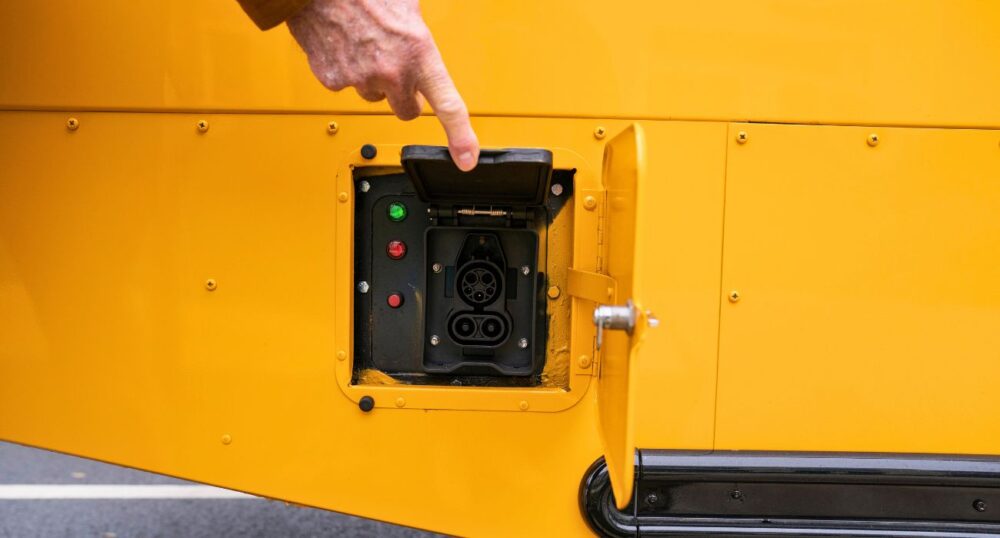A large federal taxpayer grant was presented to a North Texas school district on Thursday for the purchase of new electric school buses.
Students attending Fort Worth ISD will soon be rolling up to school a bit more quietly after the district was awarded more than $6 million in taxpayer money by the U.S. Environmental Protection Agency for a fleet of 15 new buses.
The district celebrated the federal spending on the buses, which was originally announced in January, highlighting how the new buses will be a boon for the environment, students’ health, and the district’s troubled finances.
“Today’s $6 million grant delivers a tremendous investment in environmental justice, climate resilience, and clean energy by replacing older diesel engines, which disproportionately expose communities of color to harmful pollution, with clean school buses,” EPA Region 6 Administrator Earthea Nance said, per WFAA.
Cesar Padilla, a spokesperson for Fort Worth ISD, said earlier this year that the purchase of electric school buses — which cost roughly four times more than diesel-fueled buses — would not have been possible without federal taxpayer funds, according to the Fort Worth Report.
The federal grant is part of the Clean School Bus Program, which, according to the EPA, provides districts in need with $5 billion over five years until fiscal year 2026. The program has been running since 2022 when Dallas ISD was selected to receive $7.1 million from the program pool to fund the acquisition of electric buses, as previously covered by The Dallas Express.
Both school districts have struggled academically, scoring well below the state average on their 2021-2022 STAAR exams. According to the latest Texas Education Agency accountability reports, just 32% of Fort Worth ISD students and 41% of Dallas ISD students scored at grade level.
Other Dallas-area ISDs included in the EPA’s Clean School Bus Program include Cedar Hill ISD and Valley View ISD, which are slated to receive $1,945,000 and $2,760,000, respectively.


